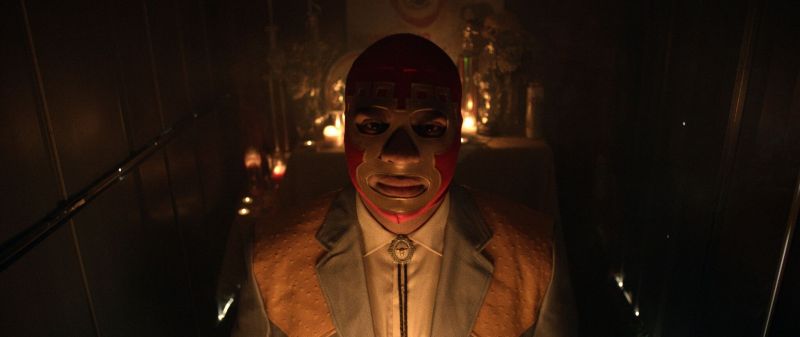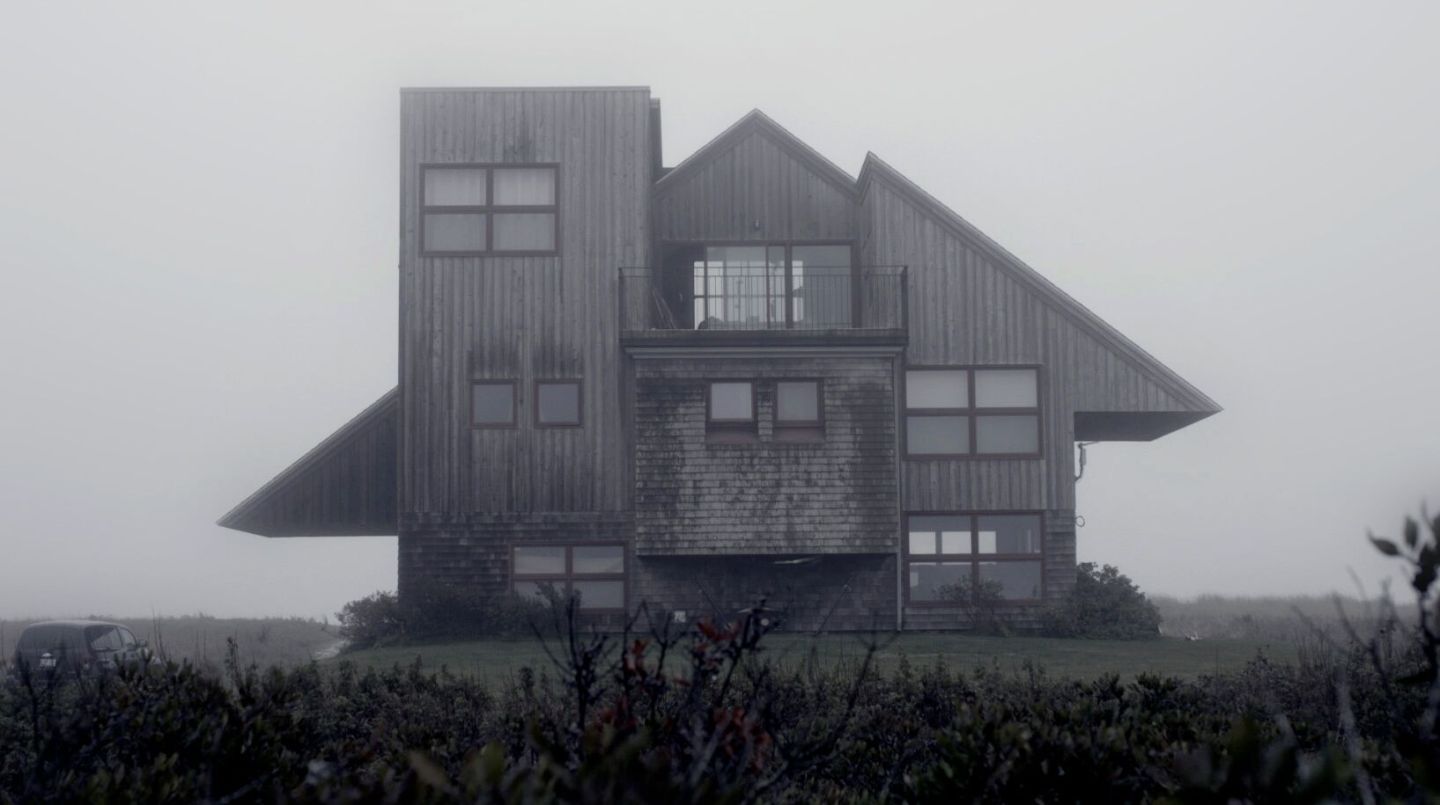Q&A with Curtis Woloschuk, VIFF Associate Director of Programming
By Paloma Pacheco
Paloma Pacheco: How long have you been programming the Altered States series, and what was the impetus for launching it?
Curtis Woloschuk: This will be my fifth year. The Altered States series launched four years ago and I’ve been doing it since it began. I think that there were always these genre films that were playing at the festival, but some of them were interspersed with other series in the festival, like Dragons & Tigers [in the Gateway Stream], for example. Some of the South Korean films that were in there would probably play at festivals like Fantasia in Montreal or SXSW [South by Southwest film festival in Austin, Texas]. I think part of the idea was just to give them some profile by putting them into a film series of their own. And then also just recognizing that there are people who do look for those kinds of films, fleshing them out a bit more and having the films themselves relate to or complement each other in some way.
It started off as late-night screenings only—seven screenings for the first year—but for the past few years we’ve been branching out and opening more 9:00 p.m. spots. This year we may even show one at 6:30 p.m. And I think that speaks to how over the five years the series has shifted. It was never just straight horror films, but I think it does reflect on how there is a lot more diversity in the programming now.
Pacheco: How do you go about selecting the films? Is it submission based, or do you curate them from different festivals, or is it a combination of both?
Woloschuk: Definitely a mix of both. Things like The Crescent by Seth Smith, I programmed one of his short films a couple years ago, so I was aware that he’d been working on this film for a while. It was on my radar, so I followed up with him and he sent it to me in a pretty early gestation, and I watched it through its various cuts. It’s a really phenomenal film and basically an extension of what he’s been doing in his recent shorts, in terms of using practical effects and many phantasmagorical elements.
A lot of the others are films that have played other festivals that I haven’t attended myself and that I sought out, or things that I did see at festivals. I went to Fantasia in July, and saw Bitch there. Seeing that film with an audience was meaningful. The Venn diagram of that film is quite insane: it’s a family drama, and a piercing satire, and also a horror film, and it does inspire quite a lot of different reactions in an audience. Tragedy Girls is one that I missed at SXSW and caught up on later as well. These are films that play well with an audience, so it does become really valuable to see them in this format—to see how they do really move people. But then something like Housewife, I think I saw that on a Vimeo screen at 6:00 a.m., which is a really strange way to start a day. The first three minutes of it are absolutely brain-melting.
Pacheco: Would you say that there is ever an underlying theme for the films you select each year, or do you notice, after you’ve curated them, any particular theme that emerges?
Woloschuk: Yes, when I look over the films selected this year, I notice that there are a lot of pretty low-fi films. The guys that made The Endless are just really incredibly resourceful filmmakers; The Crescent is a film with a lot of practical effects in it. A lot of them are films founded on pure concept and resourcefulness. For people who aspire to push the envelope with filmmaking, they’re evidence that one needn’t invest tremendously in terms of finance, it’s just really about the purity of the concept, and the drive of the filmmakers. And it’s also a year where there are a couple of films written and directed by women, and there’s definitely a strong female presence in front of the camera as well.
Pacheco: Yeah, I was looking through the program, and was going to say that it seems like there is almost a gender theme going on, and that there are quite a few films that seem to relate to gender in a satirical way.
Woloschuk: Yeah, definitely. For me it’s present throughout the entire festival program this year. Some of the elements that can be seen in Mina Shum’s Meditation Park [VIFF’s Opening Gala film] are not dissimilar to some of the themes that drive a film like Bitch, for example. Wrestling with gender roles and traditional ideas of domesticity—that element is certainly there. Then in a film like Friendly Beast, a film that is written and directed by a Brazilian female filmmaker, a lot of it is a film about emasculation, and some of the [gender stereotypes] that drive the central character. 
Pacheco: So, you’ve mentioned a few different titles, and I’m wondering if you have any personal favourites, or certain films that you think will be especially popular at the festival.
Woloschuk: Lowlife, which is a film that I’d seen before going to Fantasia, was a film that everyone was really excited about at the festival; when people saw it, it really blew them away. It’s earned a lot of comparisons to early [Quentin] Tarantino and has this vignette structure of these interlocking underworld-type stories. It’s a very impressive piece of filmmaking. You think you may have each of the characters figured out—whether it’s a luchador wrestler or someone with a swastika on their face—at first glance, but there are greater complexities that emerge.
Again, Seth Smith’s The Crescent is just a really singular film, and has perhaps one of the best performances I’ve ever seen by a three-year-old. It all hinges upon the toddler actor; it’s great. Again, that’s one of those films… As a programmer, you’re watching so many films on the screen of your laptop or on your TV at home, and there’s some visuals in that film that are so astonishingly beautiful that I can’t wait to see them on the big screen.
And I think The Endless, again. Those filmmakers are truly phenomenal; they  understand the trappings of genre so well that they’re able to play with them very effectively. Andthen Housewife is just the most over-the-top film in the series. Those are a few that pop out.
understand the trappings of genre so well that they’re able to play with them very effectively. Andthen Housewife is just the most over-the-top film in the series. Those are a few that pop out.
Pacheco: Great, noted! Just to wrap up, if you could describe the Altered States series in a few words, what would your selling point be?
Woloschuk: These are films that are meant to be seen with a crowd who want to be blown away by a movie. Like many of the other films in the festival, they play so well with an audience. The experience is one of those things that you walk away from and look at the person next to you and wonder if you both saw the same thing. We’re trying to spread the weird-love.
The Altered States series includes 10 fantastic feature-length films that defy traditional classification.
Learn all about them and get tickets by clicking here.
